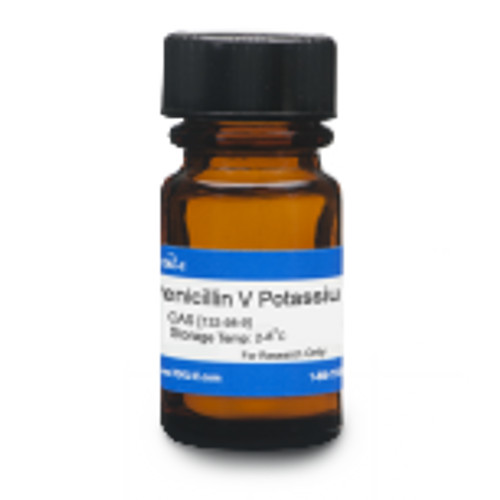Clavulanate Potassium (Potassium Clavulanate) is a stable salt preparation of Clavulanic Acid, a natural, low-molecular weight β-lactam antibiotic. It has weak, broad-spectrum activity but offers synergistic antibacterial activity with penicillins and cephalosporins for greater efficacy against β-lactam resistant strains. The compound is an oxapenam derivative. It can be used for impurity profiling using many different methods such as capillary electrophoresis and HPLC.
We also offer:







